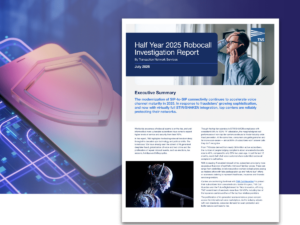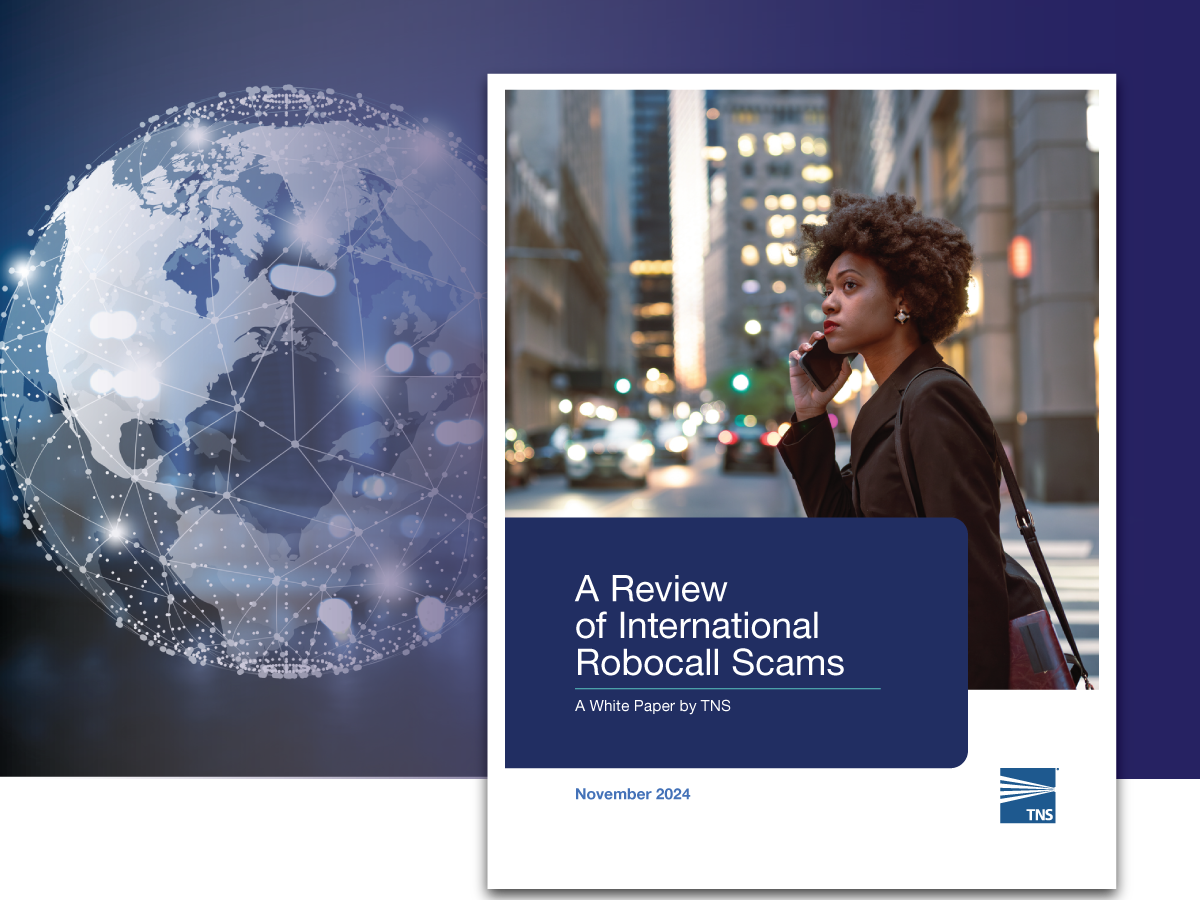Transaction Network Services (TNS) today released a new white paper, A Review of International Robocall Scams. The paper examines the top international scams, details the global rise of AI deepfakes and analyzes the emerging trends and challenges in combating scams internationally.
Unwanted robocalls are a global phenomenon that negatively impacts consumers and businesses. TNS analyzes over 1.5 billion daily calls across hundreds of carrier networks to identify the latest robocall trends and scams, and extending the geographic footprint of its research into these trends unlocks new and valuable insights for all stakeholders.
“Advancements in AI underscore the ease with which bad actors can now launch sophisticated robocall campaigns targeting any country and population, and effective robocall mitigation requires data-driven analysis and research into how global scams are evolving,” said Denny Randolph, President of TNS Communications Market. “Our latest white paper highlights these emerging international robocall scams, and shares tools and tactics available to carriers, businesses, consumers and other stakeholders to collectively restore trust in the voice channel.”
A top area of focus addressed in the white paper is how bad actors are leveraging Generative AI to launch deepfake voice cloning robocalls targeting consumers, banks and, most recently, electoral voters. Realistic yet fraudulent voice replications pose a particular near-term risk for US voters ahead of the 2024 Presidential Election.
In addition, the paper details international robocall scams and tactics frequently used by fraudsters and the impact they have on consumers and businesses worldwide, including:
- Seasonal Scams: TNS found an increase in seasonal scams, targeting individuals during tax season and holidays, and exploiting governmental agencies, as well as charities or retailers, with substantial financial losses. In Australia, Australian Tax Office based scams are becoming increasingly prevalent, with significant sums of money being lost to bad actors.
- Financial Services and Retail Fraud: The white paper details a surge in financial and retail scams, including “recovery room” schemes in the UK that target individuals who have previously fallen victim to fraud. Other schemes observed in various countries impersonate major retail brands.
- Growing Call Spoofing Threat: Call number spoofing remains a major issue worldwide, with inconsistent laws and regulations on robocalls/robotexts and caller ID spoofing. For instance, call spoofing is currently legal in Australia unless used for unlawful purposes, while the UK will impose stricter telecom rules starting January 2025 to curb spoofed calls, following existing US regulations that penalize misleading caller ID information.
Many regulators and policymakers still face challenges in equipping their networks with the robocall mitigation technologies needed to combat bad actors. By partnering with TNS, carriers can safeguard their subscribers while restoring trust in the voice channel.
To download the full white paper for all the insights, visit https://tnsi.com/resource/com/a-review-of-international-robocall-scams-white-paper/.
A Review of International Robocall Scams
Complete the form for instant access to this white paper and find out more about the international robocall scam landscape and the solutions available to protect subscribers.




